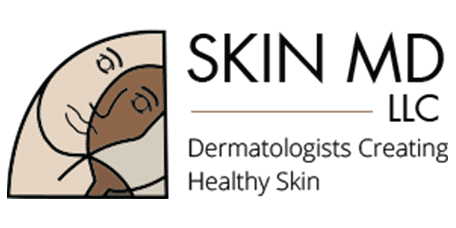It’s Rosacea Awareness Month, a fitting time to talk about this chronic and common facial disorder that is affecting more than 16 million men and women in the United States. Rosacea causes a wide range of symptoms, including visible redness, blood vessels, and swollen red bumps that can start in the middle of your face and spread to your forehead, chin, and around your eyes.
Skin conditions like rosacea do more than affect your appearance; they can make you self-conscious and otherwise affect your self-confidence. When you live with rosacea, it’s common to be plagued by feelings of:
- Worry
- Frustration and embarrassment
- Low self-esteem
- Anxiety and depression
Rather than assuming that you have to live with the redness, take some time to better understand the disease. Then you can find ways to control your symptoms and improve your quality of life.
Our experienced team at SkinMD can help develop a skin care plan personalized to you and your condition. With our locations in Chicago, Orland Park, Skokie, and Evergreen Park, Illinois, it’s easier than ever for anyone in Greater Chicago to find expert help. With a nod toward Rosacea Awareness Month, here are a few tips to increase your understanding of rosacea so you can better control your condition.
Understanding rosacea
Anyone can have rosacea, but it’s most common in women over 30 years of age who have fair skin. While its exact cause isn’t known, rosacea is likely caused by environmental and genetic factors, as it often runs in families.
When you have rosacea, your symptoms often worsen for weeks or months before improving for short periods of time. These are known as flare-ups and occur because of increased blood flow to the surface of your skin.
Several things can cause flare-ups, including:
- Consuming alcohol or hot drinks
- Eating spicy foods
- Being in extreme temperatures
- Exposure to wind or sun
- Taking medications that affect your blood vessels
- Emotions, exercise, and cosmetics can also trigger your rosacea symptoms.
Controlling rosacea symptoms
There are four subtypes of rosacea, and you can have more than one at a time. Each type of rosacea has its own distinct signs. We take a personalized approach to reducing your flare-ups, based on the severity of your symptoms and the type of rosacea you have.
Avoiding triggers
One of the first steps to reducing rosacea flare-ups is identifying and avoiding activities that trigger or worsen your symptoms. For example, if eating spicy foods or drinking alcohol increases your symptoms, you might need to avoid or lessen these menu choices.
Skin care
Proper skin care is essential for managing rosacea. This includes using gentle skin care products and cleansers that ease your symptoms and repair your skin. When you have rosacea, it’s also vital to moisturize your skin regularly, shield it from extreme temperatures and wind, and use a broad-spectrum sunscreen to protect it from sun exposure.
Choose the right cosmetics
If you have rosacea, you can still wear makeup. But it’s crucial to choose therapeutic products that don’t worsen your rosacea symptoms. At SkinMD, we’re experts in camouflage makeup techniques and can offer recommendations on applying makeup and selecting products.
Prescription medications
In addition to lifestyle changes and skin care choices, we can also offer prescription medications designed to manage specific rosacea symptoms. Keep in mind that medications work in different ways. For example, some reduce redness, while others clear up acne-like lesions or fight inflammation that can lead to rosacea symptoms with bumps and pustules.
Laser therapy
Another beneficial therapy for rosacea is laser therapy. At SkinMD, we rely on excel® V technology to target small blood vessels and red pigments in your skin. These wavelengths of light break down this unwanted pigment without affecting your surrounding skin.
For help developing a personalized skin care plan to manage your rosacea, call SkinMD or book an appointment online today.



